Chinese scam rings in Cambodia drawing recruits from Southeast Asia
Cambodia is one of Southeast Asia's fastest growing economies, but it has also become a hotbed of Chinese telecoms and online scams targeted at mainland Chinese in recent years. Most of the scam rings based in Sihanoukville recruit mainland Chinese, but have also started to bring in Chinese from Southeast Asia and Taiwan. Once duped into joining their firms, these workers are trapped and forced to work as online scammers. Lianhe Zaobao journalist Daryl Lim visited Sihanoukville in May to get a better picture.
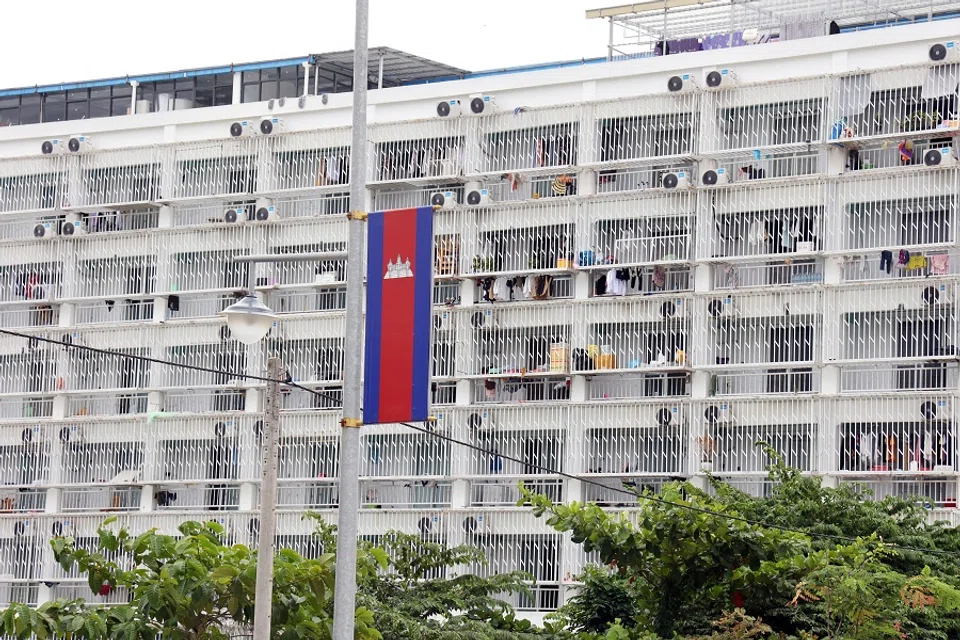
(Photos: Kwong Kai Chung/SPH Media)
Walking along Otres Beach, a tourist destination in Cambodia's Sihanoukville, visitors are lulled by the beautiful sky and sea into thinking they are at a holiday resort. But the mirage vanishes as soon as they turn around. Less than 200 metres away lies "Chinatown", the base camp of Sihanoukville's notorious scam ring.
Chinatown is one of Sihanoukville's biggest industrial compounds with over 20 ten-storey buildings. It looks like any other nondescript commercial area, except for its high barbed wire fences. The outside world cannot peek in and those inside seem to have no way out. Surveillance cameras are everywhere and the two entry/exit points are manned by armed guards.
Within the compound, there are restaurants, clinics, salons and KTV lounges, but these facilities are mostly only open to company employees. Shops on the ground floor of the buildings are closed, while the few stores open to the public segregate visitors and compound residents.
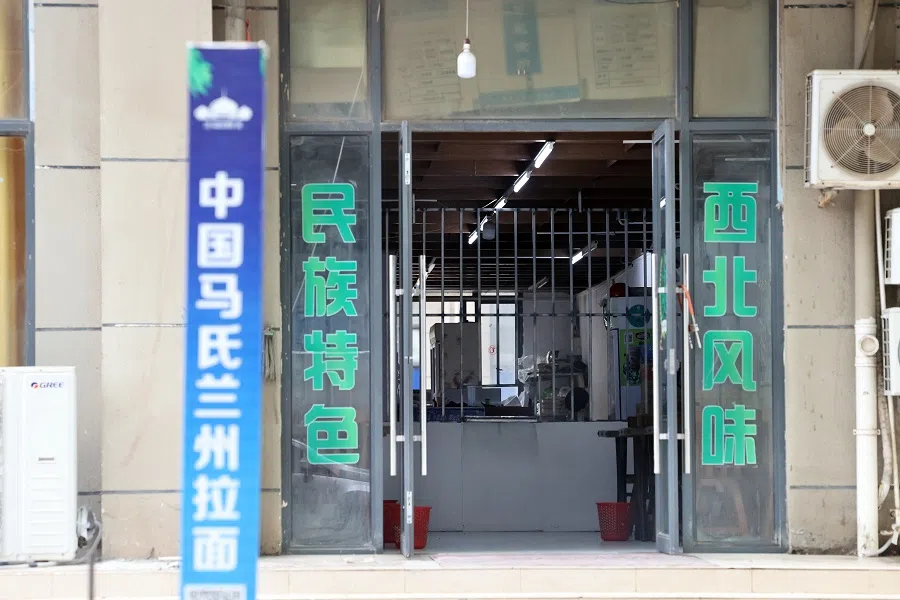
A Sihanoukville local told Zaobao that there are more than 30 such compounds in Sihanoukville operating under the guise of a technology industrial park or economic/trade centre. In reality, they run online gambling and scam businesses. While the size of these compounds vary, they are all heavily guarded and operate a closed management system.
... in the last three months alone, at least 130 victims from Malaysia, Thailand and Indonesia have been rescued from these compounds.
Southeast Asians and Taiwanese recruited into Chinese scam rings
As their targets are often mainland Chinese, most of the scammers are mainland Chinese too. But due to Covid-19 border restrictions, scam syndicates faced a "hiring crunch" and started bringing in Chinese in Southeast Asia and Taiwan who could read and write Chinese.
Based on media reports in the last three months alone, at least 130 victims from Malaysia, Thailand and Indonesia have been rescued from these compounds. But thousands are still stuck in their predicament.
Twenty-six-year-old Li Weihong (pseudonym) is one such Malaysian victim. He was tricked into coming to Sihanoukville and trapped for four months after arriving in December 2021. Zaobao spoke with him on the telephone after his rescue in April.
Li had learnt of the job opportunity from a former colleague. He believed that he would be joining an online casino company. His ex-colleague claimed that he would be paid roughly US$4,000 a month plus commission, and that his accommodation, meals and round-trip tickets would be provided. Li said, "I thought that the salary and benefits were pretty good and decided to go for it."
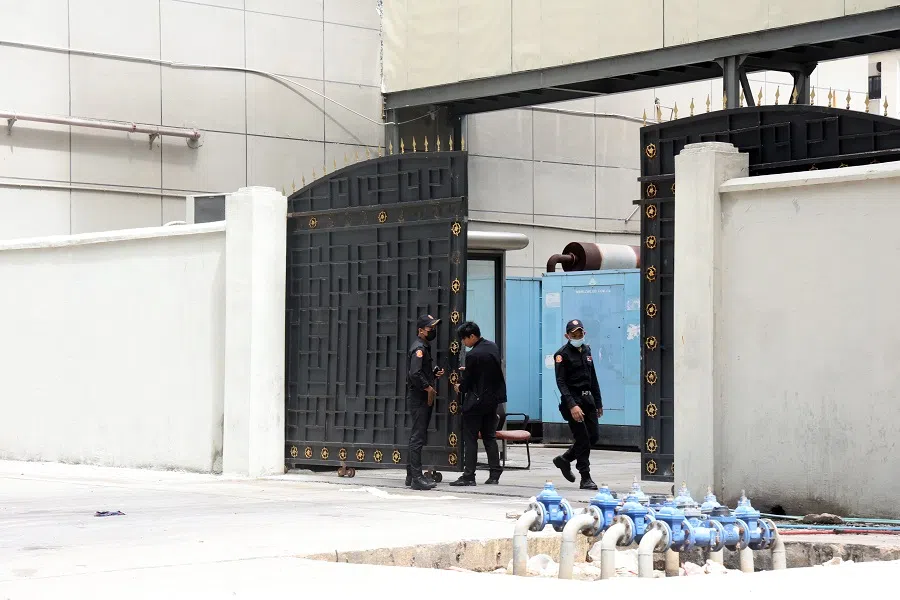
Upon arriving in Sihanoukville, the company confiscated his passport, claiming that it was part of the visa application and hiring procedures. "They told us to sign the contract, but it was totally different from what was earlier agreed upon. They would only be paying us US$1,000 a month and we had to work 12 hours a day, not eight hours," Li recounted.
The most appalling thing was that he was not working for an online casino, but an online scam ring.
No one was allowed to move around too much and all the guards had a gun, a baton and an electroshock weapon. "If anyone tried to escape, they would be beaten up or electrocuted," Li [a scam ring recruit] said.
Sihanoukville's scammers dabble in an array of fraudulent businesses and Li was assigned to an online investment scam syndicate targeted at the Chinese. He and his nine other teammates would hunt for their prey on messaging apps like WeChat and QQ and lure them to use the company's "investment" app.
Li shared that the company would first allow victims to earn an initial profit and have a taste of making easy money. As soon as they started investing bigger sums of money, the company would lock their account and take the money.
To boost their credibility, Li and his fellow scammers read from a script provided by the company whenever they spoke to the targets and sought to reel them in step by step. Li said, "We each took charge of 50 to 100 phones. Our job was to hype up the group chats using fake accounts every day, and make it seem like they were really active."
Over a short span of three months, Li's team scammed at least 30 people and robbed them of nearly two million RMB (roughly US$298,000).
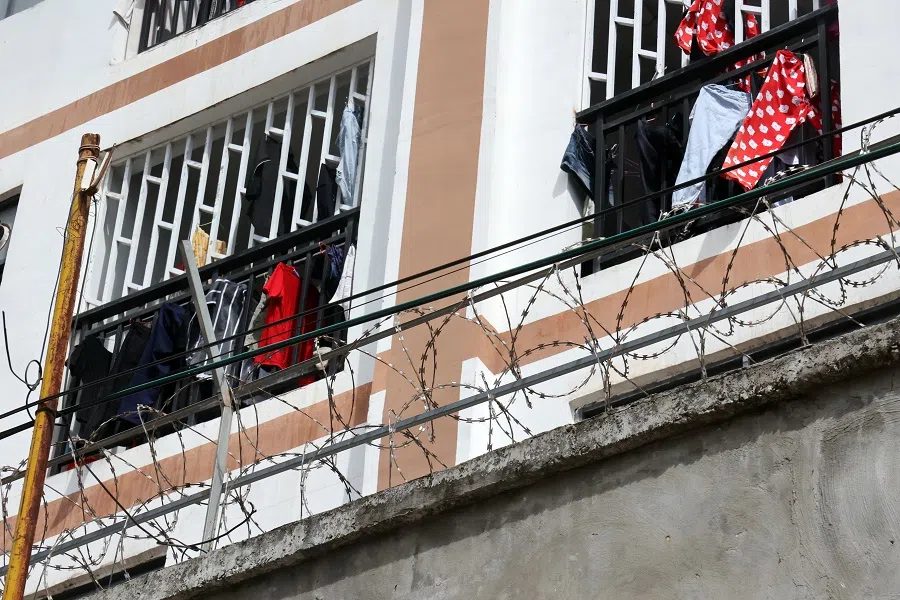
He added that there were at least 100 other workers like him and most of them were from China. No one was allowed to move around too much and all the guards had a gun, a baton and an electroshock weapon. "If anyone tried to escape, they would be beaten up or electrocuted," Li said.
Employees who performed badly or had poor attitudes were subjected to corporal punishment including climbing stairs, running around the field or copying the scammer's script. Meanwhile, the shrewd and top-performing scammers would get handsome rewards.
Not wanting to be used as an instrument to cheat people any longer, Li requested to resign in early April. But the company would only let him go if he paid a compensation of US$55,000.
In exasperation, Li secretly sought help on Facebook. Only after his family contacted the Global Anti-Scam Organization (GASO) and lodged a police report with the Malaysian police was he finally rescued.
Voluntary group on a rescue mission
Over the past year, GASO has successfully rescued at least eight workers trapped in Sihanoukville, including three Malaysians and five Chinese.
Headquartered in Singapore, GASO aims to support people around the world who have been devastated by cybercrime. It is run by approximately 70 volunteers worldwide, many of whom are victims of online scams themselves.
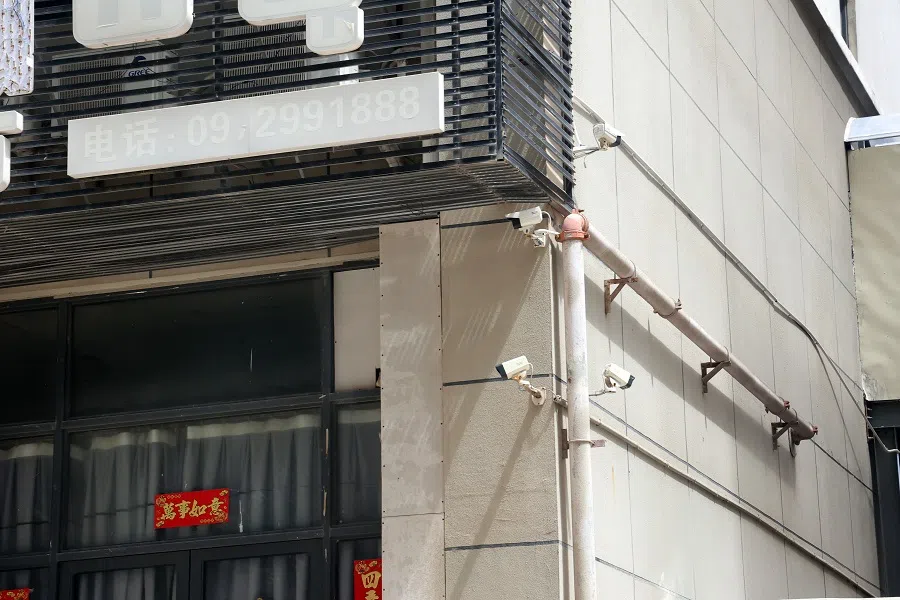
A GASO spokesperson who undertakes scam rescue efforts told Zaobao that they contacted Li immediately after his family reached out for help. They asked Li to share his location with them and to discreetly take photographs of the company premises so that they could locate him. To ensure that the scam syndicate did not find out about their plan, GASO and Li only contacted each other in the wee hours of the morning and always deleted their conversations after each call.
As Li provided enough information, Cambodian law enforcement units were able to locate the compound shortly after GASO passed the information on to the embassy of Malaysia in Cambodia.
But the scam syndicate got wind of the rescue mission before the police arrived and locked Li in a "small, dark room" for interrogation. This detention room is guarded round the clock and the imprisoned person is not allowed to eat, drink or sleep.
A source familiar with the "market rates" of human trafficking in Cambodia said the going rate for kidnapping people for scam syndicates has gone up to about US$25,000.
Thankfully, Li was rescued by Cambodian police the next day. Despite the police operation, the scam centre continued operating and none of Li's "colleagues" were aware of the situation, each continuing their day's work of scamming people.
From the time that his family lodged a police report to the day of his rescue, the process took about a week and went relatively smoothly.
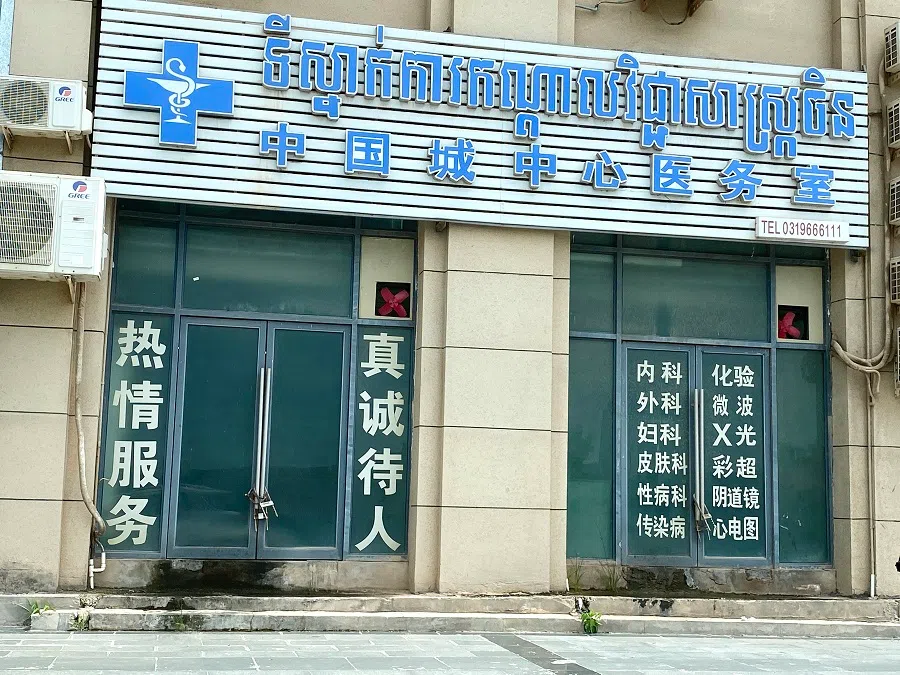
GASO said that in rescue operations, there are usually some variables to contend with, especially if the victims' families do not want to cooperate. For example, some countries require reports to be filed by family members before the embassies in Cambodia would assist in the rescue, but some victims are estranged from their families. Also, amid the pandemic, flights have been reduced between Cambodia and some countries, and air tickets home may not be available even after getting rescued.
A GASO spokesperson said: "After they are rescued, they need to find a place to stay, or go into hiding. Kidnapping cases are common, and if they run off on their own, there is a high chance of getting kidnapped and sold back to the compounds."
A source familiar with the "market rates" of human trafficking in Cambodia said the going rate for kidnapping people for scam syndicates has gone up to about US$25,000.
Some scam syndicates, on finding out that someone has called the police, would sell that person to other compounds so that he/she would not be found by the rescuers; the payment amount for these "resold" victims to get out would also go up.
... with China and Cambodia working together and clamping down harder on them, some scam syndicates have shifted their bases to northern Myanmar and Dubai.
Scam syndicates moving to Myanmar and Dubai
Zaobao understands that with China and Cambodia working together and clamping down harder on them, some scam syndicates have shifted their bases to northern Myanmar and Dubai.
Cases of Chinese scamming Chinese in Sihanoukville have gained the attention of the Chinese government. In 2019, the China-Cambodia Law Enforcement Cooperation and Coordination Office (中柬执法合作协调办公室) was established, increasing bilateral cooperation in law enforcement to hit out at cross-border crime. In August that year, the Chinese police deployed two passenger aircraft to bring 150 people suspected of being involved in telecommunications scams from Cambodia to China for trial - 132 of them were arrested in Sihanoukville.
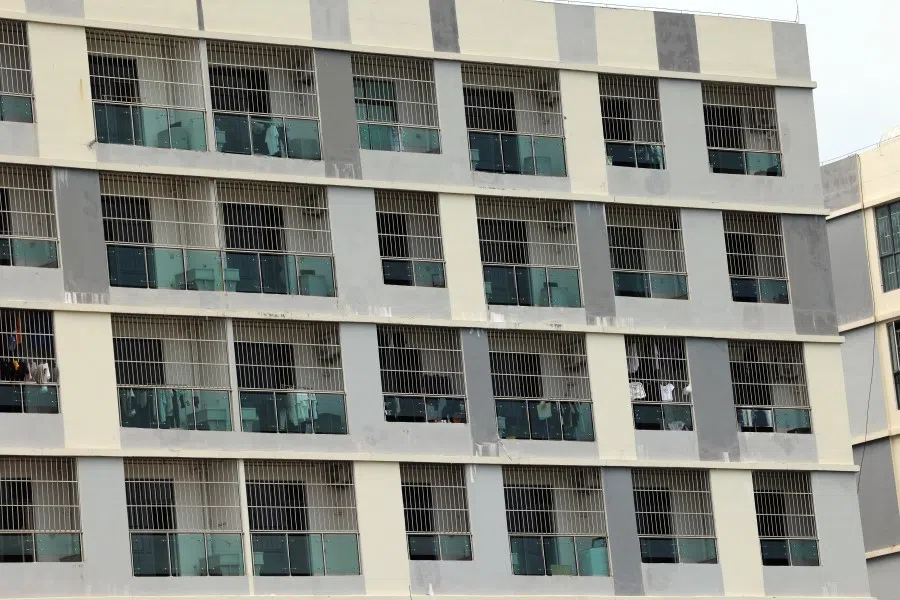
GASO believes that the law enforcement actions by China and Cambodia have hit scam activity in Sihanoukville to some extent, but there is also intelligence that scam syndicates are still recruiting in full swing, and are expanding their base to Southeast Asia and the Middle East region.
These crime syndicates have large resources and networks. Last month, Malaysian media reported that a man from Selangor was duped by a friend into going to Dubai to engage in online scamming, but after a month of poor results, he was sold again to Sihanoukville.
In recent months, GASO has also received calls for help from northern Myanmar, with the victims mainly Malaysians and Taiwanese. However, the unstable political situation makes rescue work extremely challenging. A spokesperson said: "Unlike Cambodia, there is no help from the media and volunteers. If you are duped into going to northern Myanmar, the chances of being rescued are very, very low."
GASO gave a reminder that the hiring locations of employment scams may be in other Southeast Asian countries such as Thailand, Laos and the Philippines. "Don't think it is safe because the destination is not Cambodia or Myanmar. These human traffickers can smuggle you over anytime. Once you board their vehicle, your freedom is limited."
The rampant scam and crime activity has damaged Sihanoukville's image. Chinese business owners there feel helpless, as they call on people not to paint all of them with the same brush...
Other Chinese companies dragged down and smeared
The rampant scam and crime activity has damaged Sihanoukville's image. Chinese business owners there feel helpless, as they call on people not to paint all of them with the same brush, emphasising that many Chinese businesses in Cambodia are legitimate.
Chinese businessman Mr Yang - who declined to provide his full name - runs a tourism development business. He told Zaobao that after the sensational "blood slave" case came out early this year, thousands of Chinese left Sihanoukville in fear of their personal safety, with many staying away due to the negative news about the place.
Mr Yang said many violent incidents in Sihanoukville are isolated cases and do not reflect what the place is really like, while the media did not know enough about it before reporting.
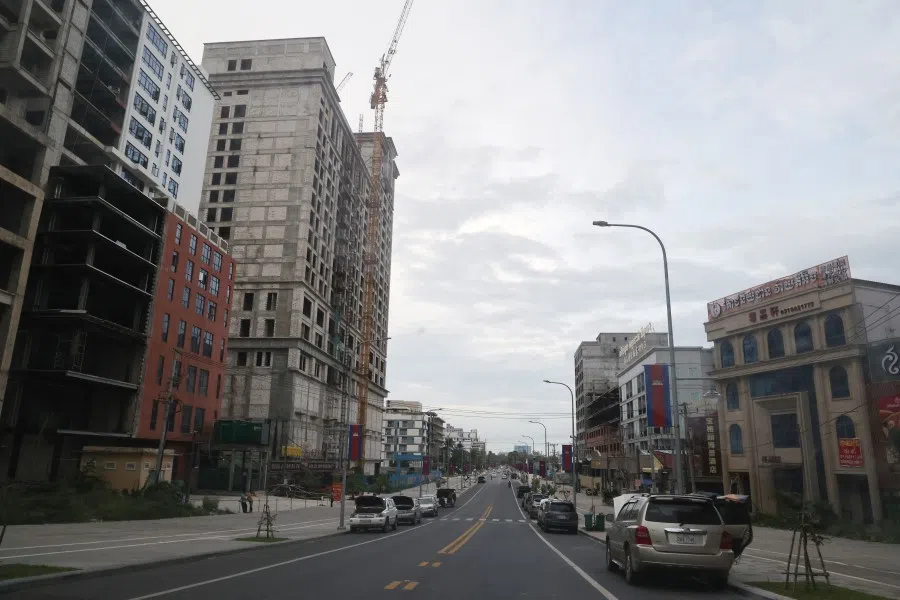
He said most companies in Sihanoukville are into online gambling rather than scams, while some online betting companies still have valid licences, so it is not illegal for them to be operating.
Around 2016, many Chinese went to Sihanoukville to develop the betting sector, and casinos sprouted up. However, the attendant crime problems also led to poor safety in Sihanoukville, sparking much controversy.
"There are so many Chinese in Sihanoukville running all kinds of businesses. Are we all cheats?" - a Chinese businessman in Sihanoukville
Online gambling banned in 2019; some operators moved to online scams
In 2019, the Cambodian government stopped approving online gambling licences on grounds of maintaining national security and public order, and banned online gambling. The gambling industry in Sihanoukville withered, and some activities went underground, while some operators switched to online scams.
Mr Yang is aware that some Chinese in Sihanoukville engage in scams and other illegal activities, but said: "There are so many Chinese in Sihanoukville running all kinds of businesses. Are we all cheats?"
Figures from the Sihanoukville local government show that 90% of industries there are invested in and managed by Chinese, including hotels, casinos, retail stores and the service sector. The Sihanoukville Special Economic Zone, jointly developed by companies from China and Cambodia, contributes over 50% of the local economy.
Southeast Asia needs to raise anti-scam awareness
Many of those duped into working for scam syndicates in Sihanoukville are educated young people. To solve the problem at its source, Southeast Asian countries need to step up publicity and raise awareness against scams.
International Justice Mission (IJM) is a charity organisation that provides legal assistance. Jacob Sims, the field office director for IJM Cambodia, said forced labour of Southeast Asians in Sihanoukville only surfaced in the past couple of years, and this is due to a large extent to the pandemic.
The high unemployment and economic downturn due to the pandemic has put many people in a tough spot, and financial pressure makes them easier to dupe.
Sims pointed out that those duped into going to Sihanoukville are not low-skilled workers, but young people who are educated and literate in multiple languages, and who can run and implement complicated scam tactics. "Before the pandemic, it would not be likely for such workers to be trafficked, or to come to Cambodia looking for work, or take a higher-risk job here."
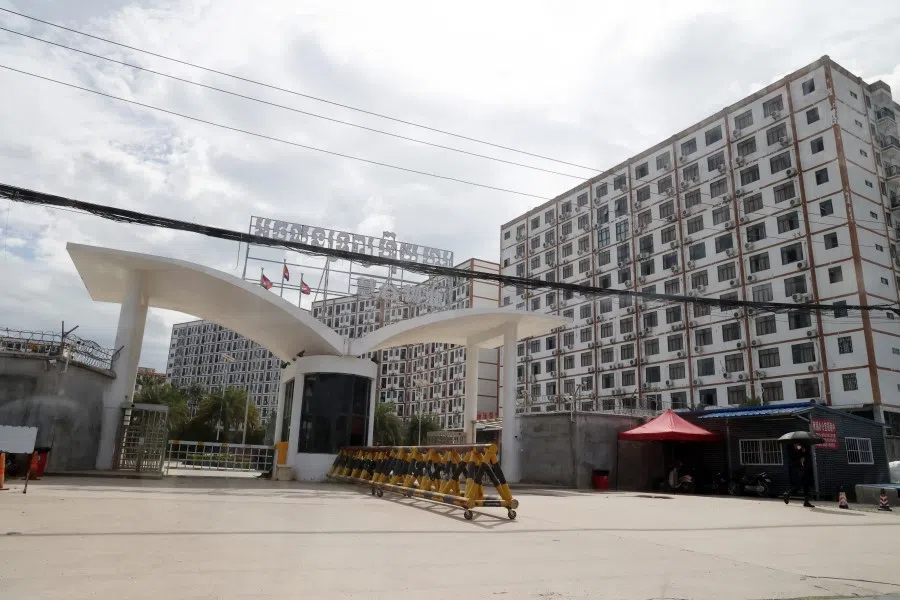
In March this year, IJM with 34 other human rights organisations in Southeast Asia released a joint statement expressing concern over the forced labour in Cambodia's compounds. The embassies of Pakistan, Vietnam and Indonesia also released warnings, calling on the public not to easily fall for online recruitment advertisements.
The Chinese embassy in Cambodia has reminded Chinese citizens to be alert to the trap of high-salary recruitment, and urged those heading to Cambodia to work to sign proper employment contracts before they leave, otherwise "what awaits you is surely not a high salary, but illegal confinement, kidnapping and blackmail in an online gambling den".
Besides stepping up publicity, Sims hopes the Cambodian government will step up its capabilities in fighting online crime, and mete out harsh punishments to the backers of the scam syndicates.
Related: Cambodia: Hard landing for China's soft power? | Kidnapped and abducted, Chinese nationals are falling victim to cross-border crimes in Cambodia | Why Cambodia is leaning towards China and not the US | Cambodians welcome yet are wary of the new Chinese | Cambodia needs to avoid putting all its eggs in the Chinese basket



![[Big read] When the Arctic opens, what happens to Singapore?](https://cassette.sphdigital.com.sg/image/thinkchina/da65edebca34645c711c55e83e9877109b3c53847ebb1305573974651df1d13a)

